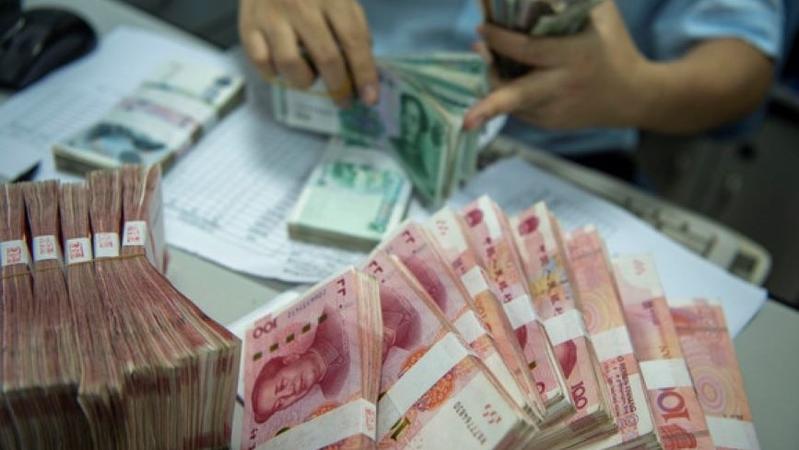Below-par demand, stabilizing RMB key factors behind calls for rate cuts
 A cashier counts RMB notes in a bank in Haian, Jiangsu province. (PHOTO / SIPA)
A cashier counts RMB notes in a bank in Haian, Jiangsu province. (PHOTO / SIPA)
China may need to further ease its monetary policy early this year as domestic demand remains insufficient while low inflation and a stabilizing renminbi have offered more scope for policy adjustments, experts said on Monday.
They commented as the People's Bank of China, the country's central bank, had pledged to amplify policy adjustments to strengthen economic recovery.
"The room for China to cut interest rates and the reserve requirement ratio — the proportion of money lenders must keep as reserves — will further expand at the beginning of this year," said Cheng Shi, chief economist at ICBC International.
Cheng also said that global central banks are poised for interest rate cuts this year, which will lessen the constraints on China's monetary policy.
As markets expect the US Federal Reserve to cut interest rates this year, the renminbi has stabilized against the dollar. Since the beginning of the fourth quarter of last year, the central parity rate of the onshore renminbi has strengthened by 1.35 percent to 7.0827 against the greenback as of Friday, according to market tracker Wind Info.
Domestically, the foundation for China's economic recovery still needs to be consolidated, Cheng said, while a number of commercial banks have recently reduced deposit rates, a move that has eased pressure on their profits and created more room for lending rate reductions.
His words echoed a PBOC statement on Thursday that the central bank will intensify adjustments in macroeconomic policies as the country's economic recovery is showing a strengthening momentum but facing challenges such as insufficient effective demand and weak social expectations.
China's consumer price index, a key gauge of inflation, dropped by 0.5 percent year-on-year in November after a 0.2 percent dip in October, which experts said has pointed to still-weak demand.
Indicating that factory activity has contracted for the third consecutive month, the country's official purchasing managers index for the manufacturing sector fell to 49 in December from 49.4 in November, below the 50-point mark that separates contraction from growth, the National Bureau of Statistics said on Sunday.
The PBOC will implement a prudent monetary policy that is flexible, moderate, precise and effective, with a focus on expanding domestic demand and boosting confidence, the central bank said on Thursday after its monetary policy committee's fourth-quarter meeting.
The meeting decided to make government investment and policy incentives more effective in catalyzing private investment, promote recovery in price levels, push for a moderate decrease in the financing costs of enterprises and residents, and make better use of financial resources that may have been allocated inefficiently.
As for the real estate sector, the meeting called for efforts to better support the demand for essential and improved housing and treat all real estate enterprises with different ownership structures equally in meeting their reasonable financing needs.
Wang Qing, chief macroeconomic analyst at Golden Credit Rating, said the PBOC will likely ramp up support for the property sector by boosting the quota of the targeted funding tools for the completion of presold housing projects and the relief of distressed real estate enterprises, as well as potentially introducing new policy instruments.


